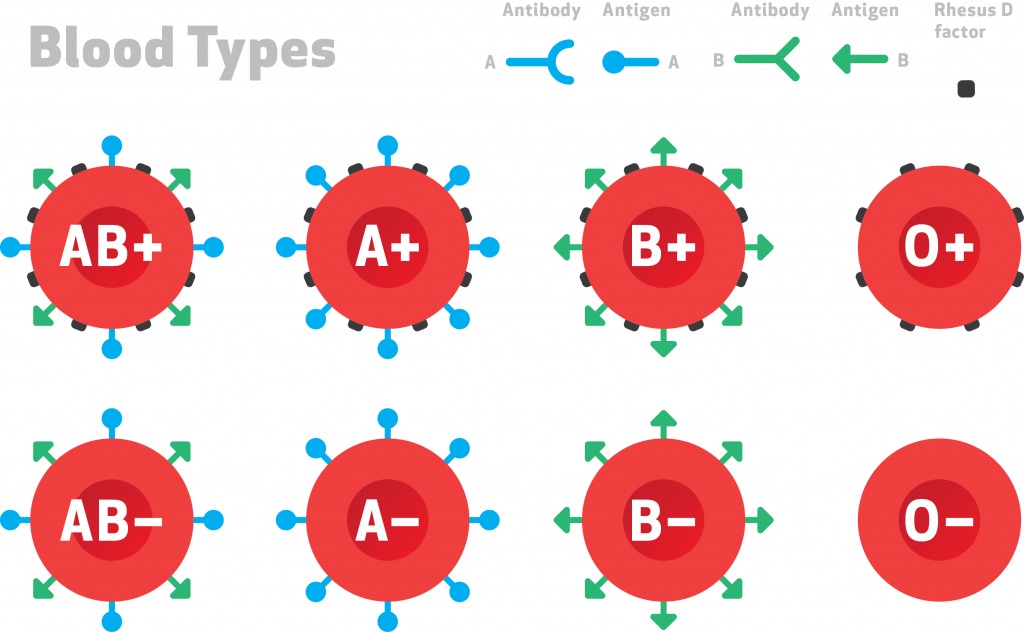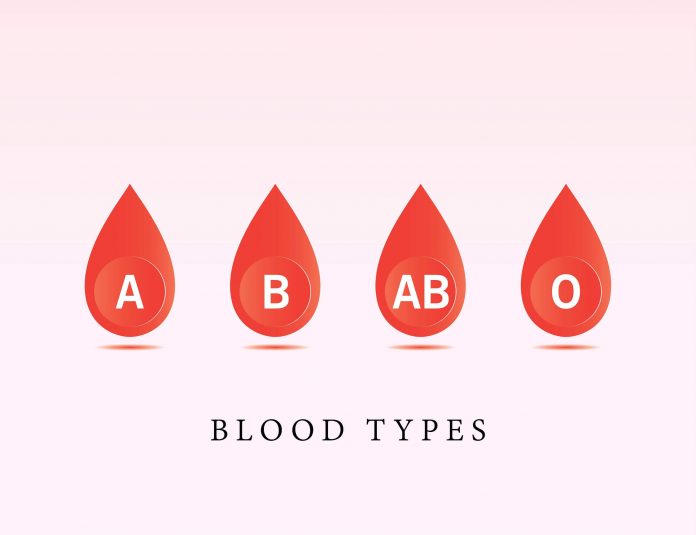Human blood cells are comprised of white and red blood cells. The white blood cells are immune cells. The red blood cells contain a component called hemoglobin. Hemoglobin binds to oxygen in your lungs, and it delivers the oxygen to the body’s tissues. Besides a red blood cell count, a blood transfusion service also checks for blood type. Giving the wrong red blood cells to a patient causes a transfusion reaction, which can kill the recipient.
What is My Blood Type?

Four types of red blood cells exist: Type A, B, AB, and O. When a patient has type A blood, for example, he produces antibodies for the type B blood type. This means that when type B blood is introduced to a type A recipient, the blood cells burst, because patient antibodies attack the foreign type B antigen. Since ABO blood types are inherited from your parents, you can determine blood type using gene calculations. This gives you the possibilities of your blood type, but final determination to find out your blood type is accomplished by a medical professional.
What is the Universal Blood Donor?

A donor with type O blood is the universal blood donor. Unlike type A and type B blood types that carry the A and B antigens respectively, type O has no antigens. This means that no antibodies attack the type O blood when it is delivered by a blood transfusion service. Since type O blood is from the universal blood donor, a Red Cross blood donation for this blood type is highly valued.
Red Cross Blood Donation and the Universal Recipient
A patient with blood type AB is the universal recipient. Blood type AB does not contain antibodies for either type A or type B, so a patient with this blood type can receive any of the available blood donations. A type AB recipient can receive type O, type A, type B, and type AB blood transfusion service from a donor.
The Rh Factor (Rhesus Factor)

The Rh factor is named for its discovery in Rhesus monkeys, which are common animals used to study human anatomy. A patient is either positive or negative for the Rh factor. The Rh factor is also inherited. For example, if a person with type AB red blood cells is positive for the Rh antigen, the patient is type AB and Rh positive. A person with Rh negative blood cannot receive blood from an Rh positive patient for the same reasons as other blood types. However, this is mostly an issue with pregnant women. Erythroblastosis fetalis is a condition where an Rh negative mother’s antibodies attack the baby’s Rh positive blood, (the Rh factor is inherited from the father).


















